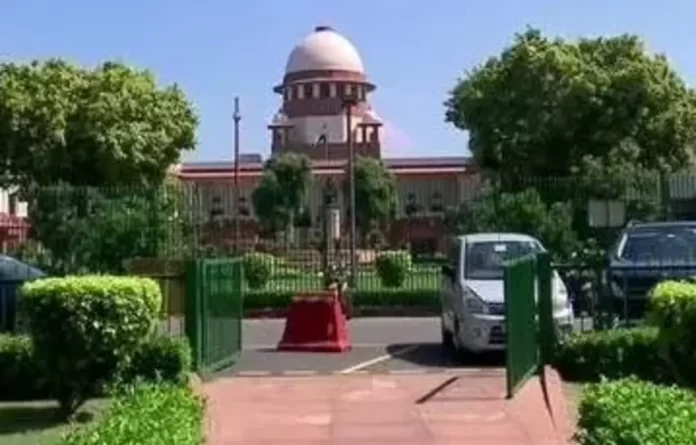Chief Justice of India DY Chandrachud on Tuesday said that the district judiciary is facing a great problem of mediocrity. He stressed that there should be proper methods that will ensure that good people are there in the judiciary.
Subsequently, the Chief Justice of India expressed prima facie approval of the Punjab and Haryana High Court’s mandate that judicial officers should secure a minimum of 50% marks in the interview for promoting District Judges.
The bench of CJI DY Chandrachud, Justice JB Pardiwala and Justice Manoj Mishra was hearing a set of special leave petitions filed against the order passed by the Punjab and Haryana High Court last month directing the Haryana Government to accept the recommendations of the High Court on appointing 13 judicial officers as additional district and session judges.
During the proceeding, the CJI verbally remarked that one of the great problems that the district judiciary faces is mediocrity. He added that the judiciary has to ensure that there are good people and that there is incentive to do well, which must percolate in the appointments to the High Court.
Appearing for some petitioners, Senior Advocate Mukul Rohatgi contended that the presiding judge of the bench which passed the judgement had dealt with the matter of appointments in his administrative capacity as well. Hence, the judge ought to have recused from hearing the matter on the judicial side, the Senior Advocate added.
Meanwhile, appearing for the State, Solicitor General of India Tushar Mehta also supported the contention, mentioning that the judge should have been rescued voluntarily even without for anyone to make a request.
The legal issue highlighted in the case was whether the High Court could have prescribed a cut-off of 50% in the viva voce without amending the rules in consultation with the State Government.
The bench was informed by Senior Advocate PS Patwalia that this cut-off was made applicable only in the 65% promotion quota and not for direct recruitment or recruitment through limited departmental competitive examination. Consecutively, the CJI remarked that there are instances of candidates performing very poorly in the interview despite good performance in the written exam.
Meanwhile, Advocate Patwalia said that his client has more than 70(out of 75) in the written exam and 12 (out of 25) in the interview and he was excluded only by half mark. Additionally, the petitioners, also represented by Senior Advocates Shyam Divan and Rakesh Dwivedi, argued that none of the participating candidates knew about this mandate as it was never published.
Solicitor General Tushar Mehta, informed the bench that the State has also filed a separate petition challenging the High Court direction and submitted that the High Court could not have passed a direction to the Governor to appoint certain persons. He further argued that without amending the rules in consultation with the State Government, the High Court could not have prescribed the separate cut-off through an administrative resolution.
Appearing for the High Court, Senior Advocate Nidesh Gupta, submitted that the test for the promotion quota was introduced as per the Supreme Court’s judgment in the All India Judges Association case. He noted that since 2013, there has been a rule that there should be 50% minimum marks in the aggregate of the marks of the written test and the interview.
He underlined that in 2021, a decision was taken by the Full Court for 50% minimum in the viva voce as well and this was conveyed to the State Government. The SEnior Advocate further contended that even if it is assumed that the candidates were not aware of this rule, there is no allegation of bias in the selection process. He asserted that several judgements of the Supreme Court have consistently said that interview is the best way of assessing the suitability of the candidates.
Gupta further stated that the High Court was filling in the gaps of the rules and no amendment to the rules was necessary. He said that consultation with the State Government is not needed for prescribing the selection criteria and pointed out that the State of Punjab has accepted this rule, following which the pendency rates have gone down.
The CJI said that the bench was not inclined to entertain the petitions, but he agreed to adjourn the hearing till tomorrow.


